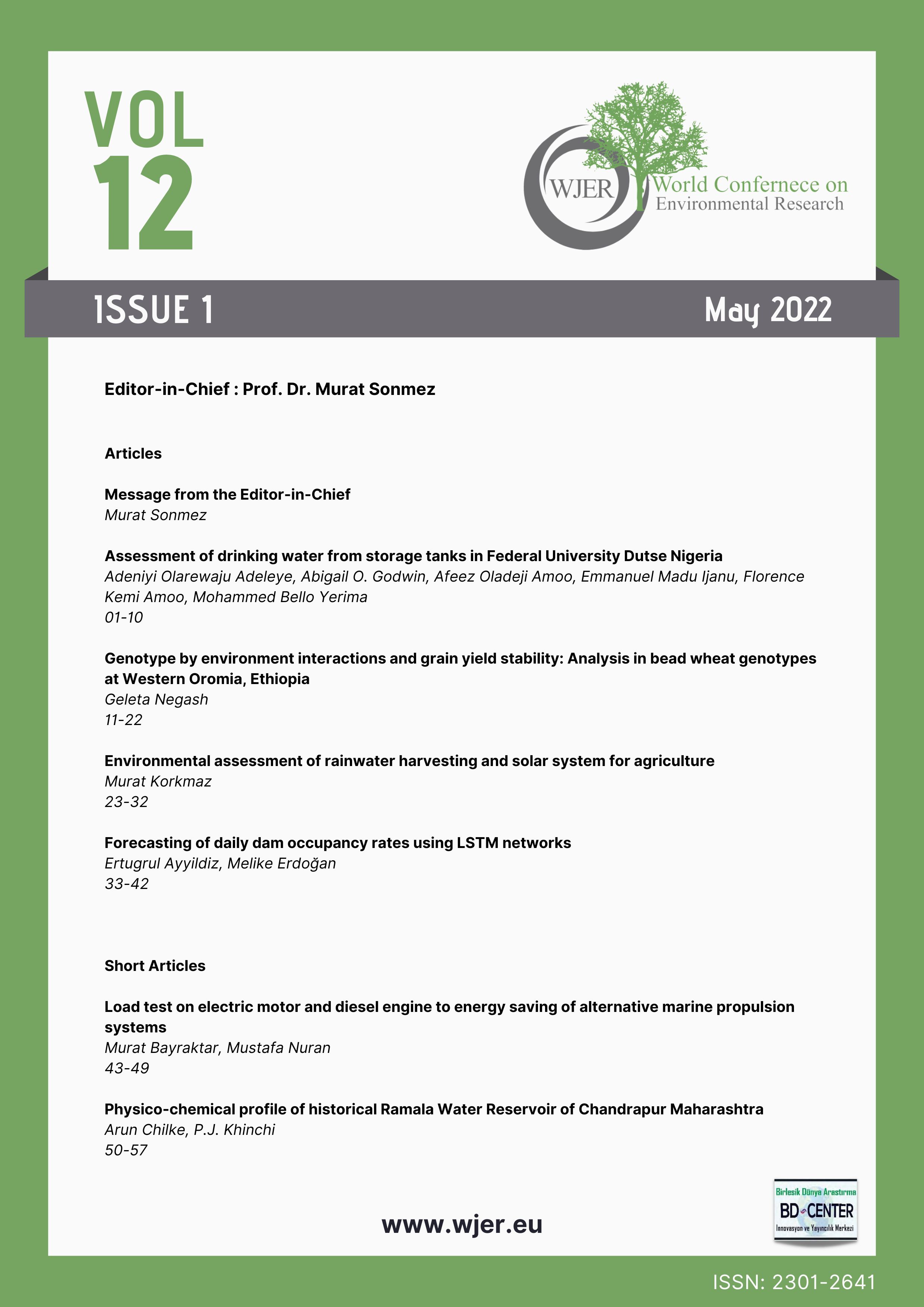Forecasting of daily dam occupancy rates using LSTM networks
Main Article Content
Abstract
Due to unconscious consumption of natural water resources and climate change, a water crisis is expected in the upcoming years. At this point, it is necessary to know the water levels in the dams and develop strategies for water-saving applications in the coming periods. This study aimed to propose the artificial neural network models for forecasting the water in the dams that provide usable water for the future. For this reason, long short-term memory (LSTM) networks that are a type of recurrent neural networks are employed to make future forecasts. The daily dam occupancy rate data between 2005 and 2021 for İstanbul is used to train the LSTM network. Then, the developed models are used to forecast over the next 30 days. The data are used in ARIMA to model the daily dam occupancy time series, for a fair comparison. The forecast values gained by the proposed LSTM network are compared with the traditional methods using RMSE and MAPE for all the forecast horizons. The results show that the LSTM-based forecast model always has a better accuracy rate than the ARIMA.
Keywords: ANNs, dam, forecasting, occupancy, LSTM, RNNs;
Downloads
Article Details

This work is licensed under a Creative Commons Attribution 4.0 International License.
World Journal of Environmental Research is an Open Access Journal. All articles can be downloaded free of charge. Articles published in the Journal are Open-Access articles distributed under Attribution 4.0 International (CC BY 4.0)
